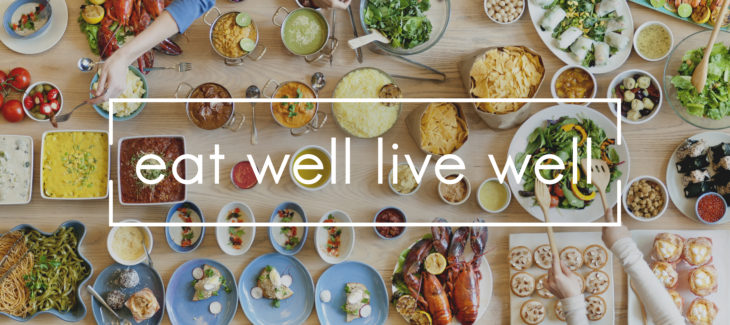The OGM Interactive Edition - Summer 2023 - Read Now!
View Past IssuesThe four cornerstones of INTELLIGENT EATING will re-frame how you nourish your body, sharpen your mind, and help you reclaim your busy life.
There is an evolving field of research called neurogastroenterology that studies the gut-brain connection. These scientists have established that the gut-brain axis influences the chemistry of mood, emotions, and is a critical factor in overall health. The intestinal tract, our “gut”, is home to 30 neurotransmitters including serotonin, acetylcholine and dopamine. These are the neurotransmitters that keep you sharp, attentive, motivated, and happy. Although serotonin is well known as a brain neurotransmitter, it is estimated that 90 percent of the body’s serotonin is made in the digestive tract. The gut is emerging as a critical mediator of mental health, and while there is still much to be discovered, we would be wise to make gut health a priority. Use the following dietary strategies to nourish your gut-brain axis:
• Include fermented foods (sauerkraut, kefir, tempeh, and kombucha) to increase beneficial bacteria.
• Foods high in fiber: whole grains, nuts, fruits and vegetables contain pre-biotics that feed beneficial gut bacteria.
• Get adequate Omega 3 fat from sources such as salmon, flax, walnuts.
• Tryptophan (salmon, poultry, and eggs) is used by the body to produce serotonin.
• Polyphenols in cocoa, green tea, olive oil and coffee are digested by gut bacteria and help to improve cognition.
Choosing an anti-inflammatory diet is nutritional multi-tasking at its finest. All aspects of your health will benefit. Reducing inflammation will keep your joints limber, brain sharp, and arteries clear. I speak from personal experience when I say nothing is more stressful than when your life is interrupted by a significant health event. Eating well, is one of the most powerful ways to reduce your risk of disease so you can continue towards your goal of living life to the fullest.
The do’s and don’ts of an anti-inflammatory diet:
• Don’t eat processed and convenience food. They are loaded with inflammatory fats, salt, sugar, and preservatives.
• Do reduce the consumption of animal products to 5 to 8 servings per week and choose wild game, grass-fed beef, and organic poultry products whenever possible.
• Don’t consume refined sugar or artificial sweeteners.
• Do include anti-inflammatory foods like wild salmon, walnuts, pineapple, cherries, dark leafy greens, turmeric and green tea.

Digital-to-door dining is now a billion-dollar industry in Canada. Meal delivery apps make it easier than ever for us to rely on the convenience of take-out. This trend is detrimental to our health. Getting back to simple whole foods, that you prepare and cook for yourself, is the best way to support your health.
If you are one of the 60% of Canadians who do not consume the minimum recommended 5 servings of fruit and vegetables daily, consider this: worldwide, 1.7 million deaths can be attributed to inadequate vegetable and fruit consumption. When you eat fruit and vegetables you consume the many cancer-fighting phytonutrients that give them their vibrant colour and unique flavour. These phytonutrients will also protect your eyes, heart, brain and prostate! Try a new fruit or vegetable each week and be sure to incorporate red, yellow, orange, green, blue, purple, and even white vegetables daily.
By age 40, about 50% of the population will have or have had a mental illness. In fact, psychological health problems are the number one cause of disability in Canada and cost the Canadian economy about $51 billion per year. Everyday stress may be unavoidable for most professionals so it is imperative we learn how to manage it effectively and support the body with good nutrition during stressful times.
Stress shuts down digestion, prevents the proper assimilation of nutrients and will deplete magnesium, vitamin C, zinc, and B vitamins. These nutrients are essential for your immune system and are used to make the neurotransmitters that keep us happy, healthy and productive. In times of stress, your body requires additional nutrients to handle the demands placed on it. So do not take nutritional shortcuts on your busiest days – it is then that your body needs optimal nourishment.
Good nutrition is an investment in your health and success. Make meal planning and preparation a priority – it will save time and allow you to get organized, shop efficiently and optimize your chances of success. If time doesn’t exist for proper meal planning, enlist the services of a professional nutritionist who can help you destress by designing a health-supporting meal plan for you. Eating intelligently means focusing on gut health, reducing inflammation and supporting your body with an unprocessed, whole-food diet. These cornerstones will provide a foundation for good health, maximum brain power at work and optimal balance at home.
Did you enjoy this article?